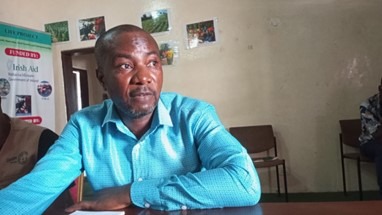In a recent discussion, Mr. Adama Sarnor, the Executive Director of the Liberia Agency for Community Development (LACD), has urged Liberian farmers to elevate their self-perception and recognize the potential of their land. Despite the numerous challenges farmers encounter, Mr. Sarnor underscores the inherent richness of Liberia’s agricultural landscape. He highlights that LACD is actively working with around 700 smallholder farmers and cooperatives in River Cess County, focusing on innovative farming techniques that include planting crops in nurseries to mitigate the impacts of climate change. These initiatives aim to modernize traditional farming approaches and strengthen local agriculture.
Nonetheless, the transition to new farming practices has not been without its difficulties. Many farmers are deeply rooted in conventional methods, which can pose a barrier to adopting new techniques. Mr. Sarnor acknowledges this struggle but reassures farmers that LACD’s experienced personnel are on hand to provide the requisite support. He emphasizes that perseverance and determination are essential qualities for farmers, positioning them as crucial contributors to the economic development of Liberia. By adopting improved agricultural methods, farmers can significantly enhance their productivity and the overall food security of the nation.
Mr. Sarnor speaks passionately about the potential for increasing the production of staple foods in Liberia, such as rice, cassava, eddoes, and yam. Highlighting LACD’s integral role in addressing pressing issues of poverty and hunger, he notes that the agency’s focus extends beyond merely providing assistance; it is about fostering self-sufficiency among local communities. The collaboration with international partners—including USAID, Irish Aid, Concern Worldwide, and ZOA—further enriches LACD’s mission, enabling a broader reach and impact in enhancing agricultural practices.
Furthermore, Mr. Sarnor advises other non-governmental organization (NGO) leaders within Liberia to prioritize transparency and integrity. He stresses the importance of utilizing funds received from international donors responsibly and effectively. By ensuring that financial resources are dedicated to their intended purposes, NGOs can foster greater trust and credibility with both their beneficiaries and partners. This call for accountability resonates deeply in a context where many organizations depend heavily on external support.
Despite the challenges of limited resources, LACD remains committed to its mission of implementing sustainable developmental programs. Mr. Sarnor outlines a vision of holistic growth that prioritizes not only agricultural advancements but also improvements in education, livelihoods, healthcare access, and community service delivery. The overarching goal is to create a future where every community member is entitled to fundamental rights, including survival, protection, and participation in socioeconomic endeavors.
Ultimately, Mr. Sarnor articulates a hopeful vision for Liberia’s agricultural sector—a future where farmers are empowered to view themselves as vital players in the nation’s economy. Through skill development, innovative practices, and reliable partnerships, LACD aims to lay the groundwork for a prosperous and sustainable agricultural landscape, fostering a climate of growth that supports both local communities and the nation at large.


